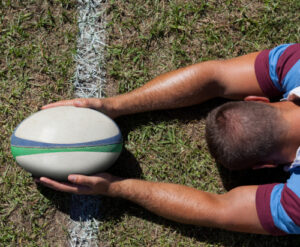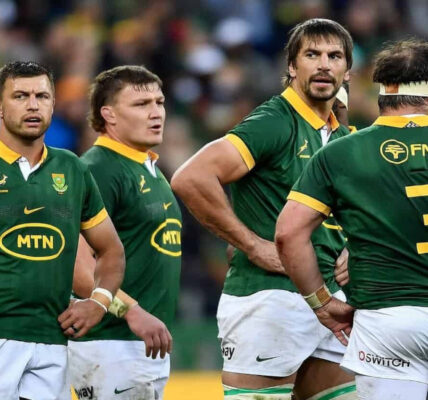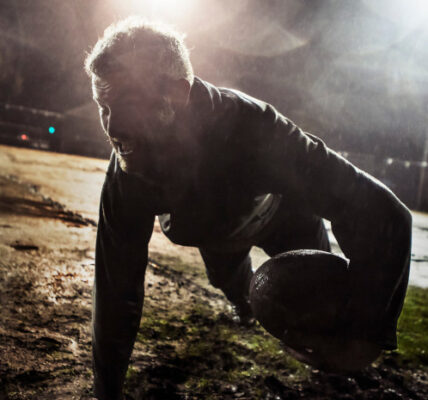In some towns across KwaZulu-Natal, Sunday mornings don’t smell like incense. They smell like liniment, muddy grass, and half-sucked oranges. The hymns are replaced by hoarse voices shouting “push!” and “hands off!” The congregation? A mix of bruised bodies, hooting kids, cooler boxes, and a few dogs that know their way around a try line better than most backs. This isn’t sacrilege. It’s sacred. It’s club rugby. For a growing number of South Africans, especially in places where post-work beers and Saturday night braais blur into dawn, Sunday morning is not for pews but pitches. These are the Rugby Churches, not official structures, not denominations, just open fields ringed with people who believe that watching (or playing) fifteen men crash into each other for eighty minutes is a kind of spiritual healing. And they’re not wrong.
 Some clubs lean into the metaphor with full conviction. In Pietermaritzburg, an old Anglican chapel sits just beyond the try line of a decades-old club field, its bell sometimes ringing during kick-off by sheer coincidence (or divine timing). In Durban’s suburbs, a former seminary’s backyard became the home ground for a local amateur side whose motto, hand-painted on the wall of the changing room, reads: “Forgive Us Our Knock-Ons.” The culture of these informal rugby congregations runs deep. There’s reverence, but also unfiltered honesty. Here, sermons come in the form of halftime pep talks from men with more scar tissue than eloquence.
Some clubs lean into the metaphor with full conviction. In Pietermaritzburg, an old Anglican chapel sits just beyond the try line of a decades-old club field, its bell sometimes ringing during kick-off by sheer coincidence (or divine timing). In Durban’s suburbs, a former seminary’s backyard became the home ground for a local amateur side whose motto, hand-painted on the wall of the changing room, reads: “Forgive Us Our Knock-Ons.” The culture of these informal rugby congregations runs deep. There’s reverence, but also unfiltered honesty. Here, sermons come in the form of halftime pep talks from men with more scar tissue than eloquence.
The rituals are sacred. Arrive early, mark your place with a fold-out chair. Aunties in bucket hats sell vetkoek from repurposed Tupperware. Old men talk about the ’95 World Cup like it happened last week. Children play their own parallel matches behind the goalposts, pretending to be Springboks, colliding with imaginary All Blacks. Nobody pays for tickets, but everyone pays attention.
Then there’s the camaraderie, the kind you don’t get from formal leagues with sponsorships and drone footage. Here, rivalries are personal, hyperlocal, and long-standing. One bad tackle from 2012 still gets brought up like a fumbled family secret. A lucky try from three seasons ago earns you a nickname that sticks harder than mud in winter. And when fights break out, and they do, they’re broken up not by security, but by a chain-smoking auntie who tells both men to act right, or no stew after the match.
But what makes these Rugby Churches so gripping is the way they absorb everything else happening in the world, politics, unemployment, power cuts, and hold space for a different kind of release. Rugby here becomes a stage for men who work too many hours for too little pay, for teens with nothing better to do than hit the gym and dream, and for veterans who will lace up their boots until their knees finally say no. It’s a way to hold on to something physical, primal, and pure in a country that often feels chaotic and disposable.
After the final whistle, there’s no altar call, just beers passed around, shoulders slapped, bruises inspected. For some, the bruises are proof that they were there, that they mattered, that they were part of something. For others, it’s simply a chance to forget everything else for a while. And isn’t that what church is supposed to be?
Because on these fields, every ruck is a prayer. Every pass is an offering. And every time the ball’s hoisted skyward under a Sunday sun, you’re reminded, faith comes in many forms, sometimes shaped like a rugby ball, flying toward the posts, with a whole sideline cheering it on.




